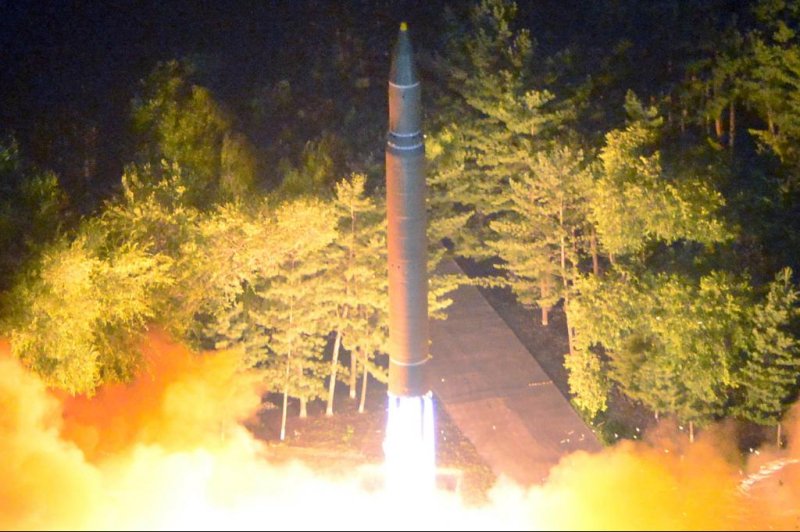North Korean missile Hwasong-14 may have failed after launch on Friday, according to a U.S. analyst.
File Photo by KCNA/EPA
Aug. 1 (UPI) -- Video from a Japanese television network is offering clues about North Korea's most recent missile test, and whether the test resulted in successful atmospheric re-entry of a North Korean warhead.
Writing for 38 North, a Johns Hopkins University website dedicated to North Korea issues, missile expert Michael Elleman of the International Institute for Strategic Studies in London noted footage from Japan's NHK indicates the missile re-entry vehicle may not have survived the "rigors of re-entry."
"Had the RV survived the rigors of re-entry, it would have continued to glow until disappearing behind the mountains," Elleman writes.
The footage of Hwasong-14's re-entry vehicle, which crashed into waters about 120 miles from the Japanese coast, instead shows the RV dimming and quickly disappearing, according to the analyst.
"At an altitude of [1.9 miles to 2.5 miles], the RV then dims and quickly disappears. This occurs before the RV passes behind the mountain range and is obscured from the camera's view, indicating that it disintegrated about the time it experienced maximum stressing loads," Elleman writes.
The video indicates the missile's re-entry vehicle did not survive its second test, according to the analyst.
The possible failure of the intercontinental ballistic missile test, however, does not mean North Korea cannot eventually achieve successful atmospheric re-entry.
The Atlantic reported Ellemen told reporters several more tests in the next three to six months could give Pyongyang time to correct the design flaw in its failed test.
An accumulation of wrong turns, however, could impede North Korea's development of an operational ICBM.
"If they continue to fail, it could take a longer period of time," Ellemen said.















